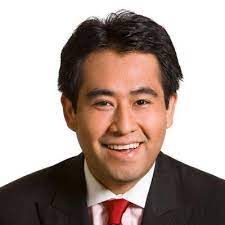Government-controlled health care wouldn’t work, but here’s what would.

Americans are generally satisfied with the quality of health care they receive. Nevertheless, most believe that the system needs reform. Latinos, too, rank health care as one of their top issues when they go to the polls.
It’s not difficult to see why. American health care is overburdened with state and federal regulations and mandates that make affordable, quality care less accessible to patients.
While some lawmakers are busy dreaming up ways to increase government control over medicine with proposals such as a public option or drug price controls, The LIBRE Initiative recommends a better way forward: a health care personal option.
The personal option is a set of smart, sensible reforms designed to:
- Lower the costs of care
- Increase access
- Promote price transparency
- Place the patient at the center of health care
For those skeptical that the personal option can reform our health care system for the better, The LIBRE Initiative spokesperson Israel Ortega explains why government-controlled medicine wouldn’t work and why a personal option is a better solution.
We can all agree that health care is too expensive. But isn’t that the fault of insurance companies? If we remove them from the equation and implement single-payer health care, wouldn’t prices go down?
 Ortega: It would be nice if the problem were that simple. Health care is expensive for a host of reasons, but outlawing insurance companies wouldn’t stop rising costs.
Ortega: It would be nice if the problem were that simple. Health care is expensive for a host of reasons, but outlawing insurance companies wouldn’t stop rising costs.
How do we know? Well, many countries, including Canada and the United Kingdom, have tried it.
They’ve found out the hard way that government-controlled medicine doesn’t reduce costs. It simply shifts them, while resulting in shortages of medicine and providers.
Health care is nominally “free” in these countries, but it is notoriously difficult to access. If you need cancer treatment in Canada, it helps if you’re patient: the median wait time is nearly 21 weeks.
And still, these systems experience runaway costs.
Do you think government would be an effective health care administrator? Wouldn’t it be better at making health care decisions than countless doctors, patients, and companies?
Ortega: Not at all. Just look at how federal agencies handled the pandemic.
We’re in a better place with COVID-19 than before, thanks principally to quick production and distribution of vaccines.
But when things were dire, government failed where it promised the most, especially when it came to testing kits and its slow walking of lifesaving drug therapies.
The states, too, had enormous roadblocks in place that prevented the delivery of care.
These barriers included scope-of-practice restrictions, which forbid advanced practice registered nurses from seeing to patients without physician supervision.
Another one was certificate-of-need laws, which prevent providers from offering new services, purchasing new equipment, or constructing new locations without government permission, leading to higher costs and reduced access.
Early in the pandemic, many states suspended these harmful regulations to improve patient care and help hospitals keep up with the influx of COVID-19 infections. Some are now in the process of repealing these laws for good.
Can’t we just declare health care a right and make it easier to access? What would a personal option do differently?
Ortega: Many countries have tried exactly that approach, with little success. Latinos, particularly those from Venezuela and Cuba, know how this turns out every time.
A personal option would help everyone get the care they need, when they need it, at a price they can afford. That’s because it preserves what is good about our health care and fixes what hasn’t worked.
For example, expand tax-free health savings accounts to allow more Americans to put money away for future medical care and save on each expense.
And remove restrictions on health reimbursement arrangements, which give people more access to portable insurance.
And codify in law temporary reforms made by the states to combat the pandemic.
We know how government-controlled health care would work. Other counties have tried it many times before. What Americans need right now is a personal option that places them at the center of their health care.
Want to learn more about the personal option? Read more about The LIBRE Initiative’s plan to improve health care.

